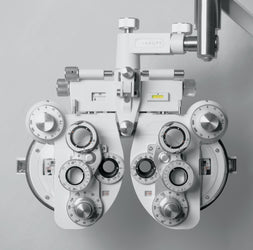January is Glaucoma Awareness Month 2025, a perfect time to learn more about this common eye condition and how to protect your vision for years to come. Glaucoma, often referred to as the 'silent thief of sight,' can affect anyone, but the good news is that early detection and care can make a world of difference. Let’s explore how to spot and manage glaucoma effectively.
What Is Glaucoma?
Glaucoma is a group of eye conditions that can affect the optic nerve, often due to increased pressure inside the eye. Left untreated, it may lead to vision loss—but with regular eye tests and the right management, most people can maintain their eyesight.
The two most common types are:
- Open-Angle Glaucoma: Progresses gradually and is often symptom-free in the early stages.
-
Angle-Closure Glaucoma: Less common but may come on suddenly, sometimes with noticeable symptoms like eye pain or blurred vision.
What to Look For
In many cases, glaucoma develops without obvious symptoms, but here are some signs to be mindful of:
- Gradual loss of peripheral vision.
- Blurred or 'tunnel' vision.
- Seeing halos around lights.
- Eye discomfort, redness, or headaches in some cases.
If you notice any of these changes, it’s a good idea to schedule an appointment with one of our friendly optometrists.
Early Detection Is Key
Regular eye tests are your best tool for spotting glaucoma early. These check-ups can include:
- Pressure Testing (Tonometry): Measures intraocular pressure.
- Optic Nerve Imaging: Looks for early signs of damage.
- Visual Field Testing: Identifies any gaps in your peripheral vision.
If you have risk factors like a family history of glaucoma, age over 40, or conditions like diabetes, make annual eye exams a priority.
Managing Glaucoma
While glaucoma is a lifelong condition, modern treatments make managing it easier than ever:
- Eye Drops: These can help lower eye pressure effectively.
- Laser Treatments: Improve the flow of fluid in the eye or reduce its production.
- Surgery: For more advanced cases, surgical procedures can preserve vision.
- Healthy Habits: A balanced diet, regular exercise, and avoiding smoking all contribute to your eye health.
Take away
Glaucoma doesn’t have to define your vision health. With regular check-ups and today’s treatment options, you can stay ahead of the condition and keep enjoying the activities you love.
This Glaucoma Awareness Month, make eye care a priority. Schedule an eye test and encourage your friends and family to do the same. PLUS: If you have a family history of glaucoma, you may be entitled to a free NHS-funded eye test. Regular check-ups are vital. Our team is here to help—contact us today to learn more about your eligibility and to book your appointment.








